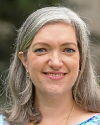2025-2026 CTL Fellows
 David Sterling Brown, Associate Professor of English
David Sterling Brown, Associate Professor of English
Shakespeare Under the Hood: Teaching, Researching and Learning from Within
An extension of Brown’s signature critical-personal-experiential methodological approach to Shakespeare Studies that drives Shakespeare’s White Others (Cambridge UP 2023), this project explores how conscientious student-centered, and life-changing, pedagogy starts from within the pedagogue. By understanding their origins, cultural roots, physicality, traumas, race, privilege, etc. — the invisible and often unacknowledged matter they bring into the classroom consciously and unconsciously — teachers can develop and provide pedagogy that not only moves students but stays with them because it becomes inextricably linked to who they are. This project asks teachers to consider where they come from, where and how they grew up, and to think about the formative aspects of their own different living environments that were, and likely still are as adults, integral to their learning processes. Furthermore, this project, informed by Christopher Emdin’s scholarship, prompts teachers to consider how their current environments influence what they know and how they teach and/or still learn. By linking pedagogy to reflections on one’s own “hood,” so to speak, and the experiences that occurred in that environment where one cultivated the self, instructors can better learn how to elicit the critical-personal-experiential from students.
 Walid Bouchakour, Visiting Assistant Professor of Language and Culture Studies
Walid Bouchakour, Visiting Assistant Professor of Language and Culture Studies
Decentering the Canon through a Digital Humanities Project
My project explores how digital humanities can serve as pedagogical tools to expand the literary canon in Francophone studies. Specifically, I plan to integrate a digital component into my new course, FREN355: Decolonizing Francophonie. As a final project, students will curate a literary text for an open-access online anthology, offering them a hands-on opportunity to critically examine and actively participate in decentering the literary canon.
Through this fellowship, I aim to rethink the course’s content and methods to better reflect the diversity of Francophone literary production and to align more closely with students’ varied interests. I also plan to redesign the course as a project-based learning experience that fosters student engagement and initiative throughout the semester. Ultimately, I hope to apply the pedagogical tools and methods developed during this workshop to my broader teaching of literature and advanced language courses.
 Catherine Bue-Hepner, Visiting Assistant Professor of Biology
Catherine Bue-Hepner, Visiting Assistant Professor of Biology
Designing a Research-Based Project Lab for Intermediate Biology Students
My CTL project focuses on developing an intermediate biology lab to help students transition from a skills lab setting in introductory and intermediate courses to research projects in advanced courses and independent research. Students often struggle to move to a discovery mindset after several semesters of experiments with predictable outcomes as they work to learn important laboratory skills. My goal is to develop a semester-long laboratory project that tasks students with determining the identity of a fluorescently tagged protein with a major focus on data collection and analysis rather than achieving one predicted result. Students will use previously-learned lab techniques with modifications as well as new techniques and databases, all with the goal of collecting different types of data that will help tell the whole story of their protein and help them determine its identity. The importance of data analysis will also be emphasized, as the individual data will likely not provide a single clear answer and will require groups to support their identification. My expectation is that knowing that there is a correct answer and the effort of working throughout the semester to determine that answer will help with this transition into more exploratory experimentation and allow them to adjust more easily to research projects that generate less predictable results. My work will include designing constructs for students to use and setting up the ability to add new tagged proteins to a collection for future use, as well as developing valuable and appropriate experiments for each lab meeting.
 Elisabeth Buzay, Visiting Assistant Professor of Language and Culture Studies
Elisabeth Buzay, Visiting Assistant Professor of Language and Culture Studies
Using and Refusing AI in Francophone Studies Classes
This teaching project will focus on developing best practices for both using and refusing AI in the Francophone Studies classroom at all levels. On the one hand, what are the affordances of AI as a digital tool for language learning? Can AI help students to become better language learners and better critical thinkers, and if so, how? On the other hand, how can I ensure that the work my students produce is truly their own, as that is the only way that I can help them to grow as language learners? How can I help students avoid the temptation to fall into the AI trap that so many find so hard to avoid? The first part of this teaching project will address the question of how I can create pedagogically pertinent activities and assignments that engage with AI. I will focus on figuring out how such assignments could work at different course levels and for different levels of language learning. The second part of my teaching project will address how to create activities and assignments that ensure as much as possible that students cannot use AI to complete them. I plan to explore possibilities beyond pen-and-paper in-class writing assignments, which I already incorporate in many of my classes, more particularly in the context of high-level courses that require longer or more complex written work than can be produced in a single class period. My short-term goal with this project is to develop different approaches with and without AI that I can use in the language, creative writing, and high-level literature/culture courses I will be teaching next year, but I also anticipate discovering techniques that I can use longer term in my teaching moving forward. In addition to developing concrete approaches that help students learn to use AI productively and encourage them to avoid AI-assisted academic integrity issues, I hope that by explicitly addressing questions of AI with my students, they will be able to develop more advanced and nuanced critical thinking skills around this topic.
 Ben Carbonetti, Senior Lecturer in Human Rights Studies
Ben Carbonetti, Senior Lecturer in Human Rights Studies
Simulations, Games, and Exercises in the Study of International Human Rights Law
My CTL project aims to extend and formalize some basic simulation games and exercises I utilize in international human rights law HRST/POLS 369. Specifically, I seek to create clearer learning goals, rules, and grading criteria for my current UN Human Rights Council simulation and my case analysis exercises. The class requires students from a variety of majors and backgrounds to familiarize themselves with the principles of international law, international relations, and human rights. Students analyze a variety of cases, treaties, and institutions that are central to the work of the international human rights regime and international organizations. At times these concepts and principles are difficult to grasp without practical examples, and my hope is this project will dramatically improve the utility of my current simulation and case analysis exercises.
 Hernán Flom, Senior Lecturer in Political Science
Hernán Flom, Senior Lecturer in Political Science
“De-lecturing” Comparative Politics: Applying Active Learning Strategies in an Introductory Course
Abstract: At CTL, I will explore active learning techniques to apply in my Intro to Comparative Politics course. I intend to restructure the course’s class dynamics and assignments to increase the quantity and quality of student participation, introduce students to cutting-edge research rather than basic textbook definitions, connect the material to current events, and limit my lecturing to cover specific gaps in student comprehension. With feedback from CTL fellows, I will be designing activities such as small group discussions, larger group debates, and in-class quizzes to achieve these objectives.
 Daniel J. Mrozowski, Senior Lecturer in English
Daniel J. Mrozowski, Senior Lecturer in English
Artificial Intelligence & Genre Fiction
Genre texts rely on familiar conventions to produce valuable bits of artistic grammar; these conventions are repetitively meaningful, especially when accepted and understood within an eager audience. What will happen to genre fiction – with its easily learned, repeated, and connected patterns – as it gets caught in the gravity of algorithmic technologies? Genre fiction seems particularly vulnerable to the sloppy, proliferating productions of generative AI – but real innovations in the study and teaching of these systematic texts seem just as plausible. I’ve personally been resistant to the ways in which AI has infiltrated our everyday lives and languages, and I find the kind of art currently spit out by AI programs to be anathema. But as a humanist and a genre fan, I want to try to understand and adapt to this wave of technology in ways that preserves what I think is thrilling and productive about the study of genre fiction. I believe there are great opportunities to shape our curriculum in ways that build from the best of the humanities and the liberal arts tradition while not ceding the territory of a massive technological advancement just to the financiers fueling those technologies.
